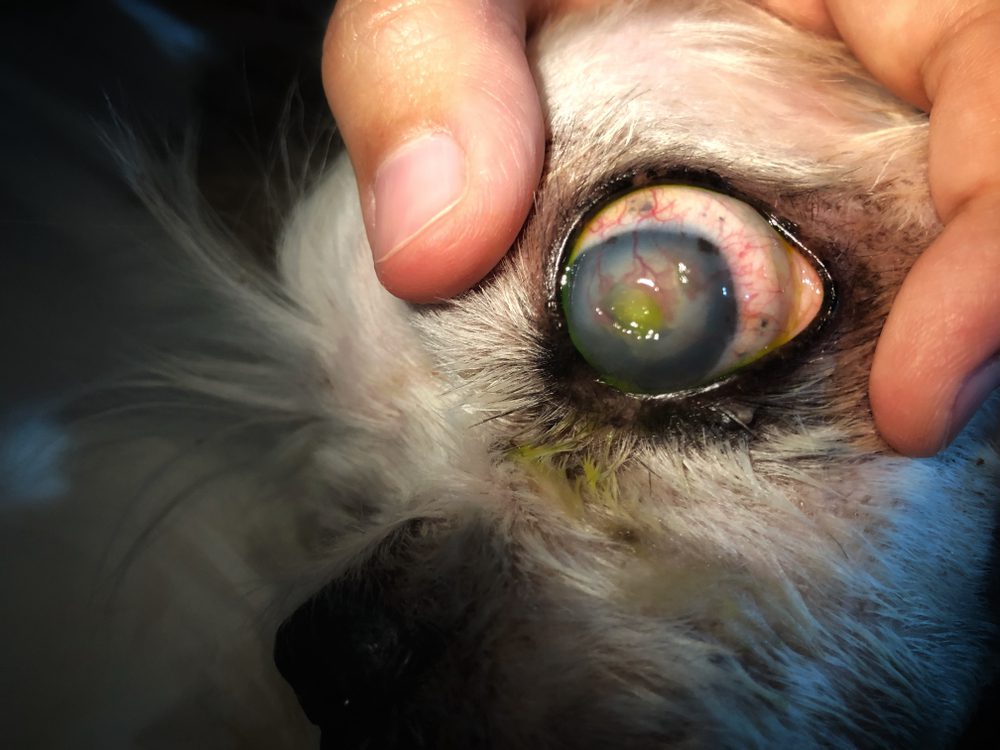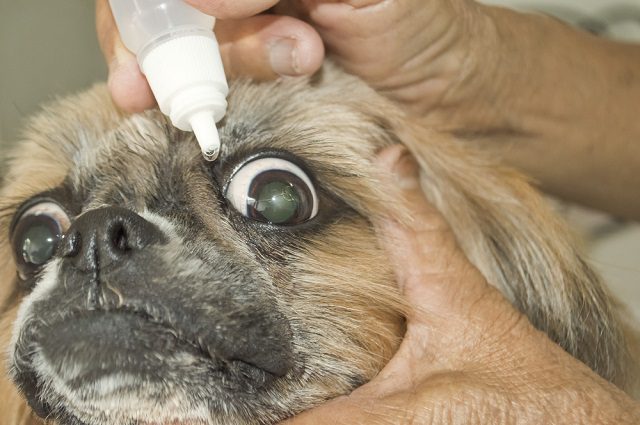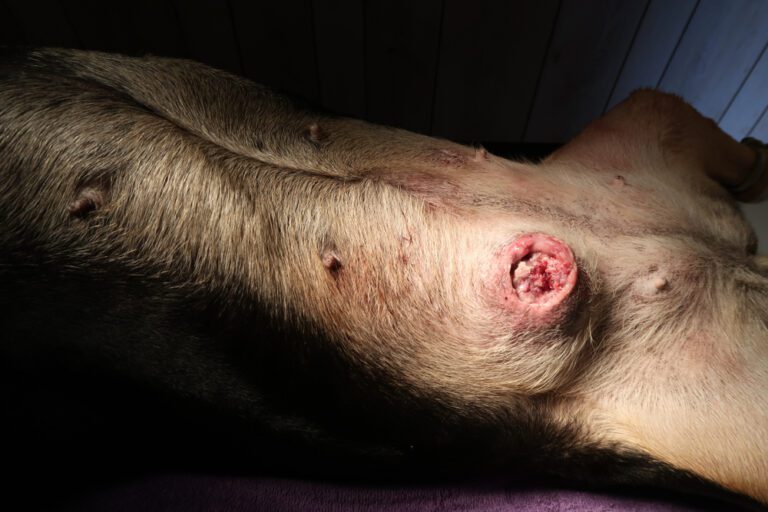10 Home Remedies for Shih Tzu Eye Infections – You Won’t Believe #5!
If your Shih Tzu has ever had an eye infection, you know how painful and worrying it can be. Seeing your Shih Tzu in discomfort is heart-wrenching. But don’t worry! Home remedies can offer simple solutions. Eye infections in Shih Tzus are common, and treating them quickly is important to keep your pet happy and healthy. In this article, we’ll explore ten easy and effective remedies you can try at home. And wait until you see the fifth remedy—it’s truly surprising! Let’s discover how you can make your Shih Tzu feel better with these natural solutions.
Shih Tzu Eye Infections
Eye infections in Shih Tzus can be a real pain for your pet and you. To help your furry friend, it’s important to know what causes these infections, what symptoms to watch out for, and when to see a vet. Let’s break it down:
Common Causes
Shih Tzus have adorable, big eyes, making them more likely to get eye infections. Here are some common causes:
- Dust and Debris: Shih Tzus are low to the ground. This means dust and dirt can easily get into their eyes.
- Allergies: Like people, Shih Tzus can develop allergies to pollen, dust, or certain foods. These allergies can cause red, itchy eyes.
- Injury: A scratch or poke to the eye can lead to an infection.
- Blocked Tear Ducts: Shih Tzus often has tear duct problems. This can cause tears to overflow and wet the eyes, leading to infections.
- Bacterial or Viral Infections: Dogs can catch bacterial or viral infections that affect their eyes like humans.
Symptoms to Look Out For
Knowing the signs of an eye infection can help you act quickly. Keep an eye out for these symptoms:
- Redness: If your Shih Tzu’s eyes look red, it could indicate an infection.
- Swelling: Puffy eyes or swollen eyelids are common symptoms.
- Discharge: Watery, yellow, or green discharge is a clear sign of an infection.
- Squinting or Blinking: If your dog squints or blinks a lot, their eyes might be hurting.
- Rubbing or Pawing at Eyes: This means their eyes are itchy or painful.
When to Consult a Vet
While home remedies can be very helpful, sometimes you must see a vet. Here’s When It’s Time to Take Your Shih Tzu to the Vet:
- Persistent Symptoms: If the symptoms don’t improve in a few days, it’s time to see a vet.
- Severe Discharge: A vet visit is necessary if the discharge is thick and green.
- Pain: If your dog is in a lot of pain, don’t wait. Go to the vet right away.
- Vision Problems: If your Shih Tzu seems to have trouble seeing, get help from a vet.
Understanding the causes and symptoms of eye infections can help keep your Shih Tzu healthy and happy. And remember, when in doubt, a vet is always the best option to ensure your pet gets the care they need.
Home Remedies for Shih Tzu Eye Infections
When your Shih Tzu has an eye infection, you want to help them feel better quickly. Here are ten home remedies to soothe your pet’s eyes and help clear up the infection. Remember, always be gentle and careful when treating your dog’s eyes.
1. Saline Solution
The saline solution is simple but effective.
- How to Prepare: Simply mix one teaspoon of salt into a cup of warm water.
- How to Apply: Gently wipe your Shih Tzu’s eyes with the solution using a clean cotton ball.
- Benefits: Saline cleans the eye and removes irritants.
2. Chamomile Tea Compress
Chamomile tea can calm irritated eyes.
- Preparation Steps: Brew a cup of chamomile tea and let it cool.
- Application Method: Soak a clean cloth in the tea and place it over your dog’s closed eyes for a few minutes.
- Healing Properties: Chamomile reduces inflammation and soothes the eyes.
3. Coconut Oil
Coconut oil has natural antibacterial properties.
- Antibacterial and Soothing Effects: It can help fight infection and reduce redness.
- How to Use Safely: Put a small amount of coconut oil on a clean finger or cotton swab and gently apply it to the affected area.
4. Apple Cider Vinegar
Apple cider vinegar can help fight infections.
- Dilution and Application: For dilution and application, mix one part vinegar with two parts water. Use a cotton ball to apply the mixture around the eyes, but not directly in the eyes.
- Benefits and Precautions: It helps to kill bacteria, but be careful to avoid the eyes themselves.
5. Manuka Honey
Manuka honey is a surprisingly powerful remedy.
- Unique Properties: It boasts strong antibacterial and healing effects.
- How to Apply: Apply a small amount of honey to a clean finger or cotton swab and gently around the eye area.
- Why It’s Surprisingly Effective: Manuka honey can speed up healing and reduce infection.
6. Green Tea
Green tea can help reduce eye inflammation.
- Anti-inflammatory Benefits: It soothes and reduces swelling.
- Preparation and Usage: Brew a cup of green tea, let it cool, and gently clean the eyes with a soaked cotton ball.
7. Warm Compress
A warm compress can provide immediate relief.
- How to Make and Use: Soak a clean cloth in warm water, wring it out, and place it over your dog’s closed eyes for a few minutes.
- Benefits for Eye Infections: It helps to reduce swelling and soothe irritation.
8. Aloe Vera Gel
Aloe vera is well-known for its healing properties.
- Natural Healing Properties: It can soothe and heal irritated eyes.
- Safe Application Methods: Apply a small amount of pure aloe vera gel gently around the eyes.
9. Echinacea Extract
Echinacea boosts the immune system.
- Immune-boosting Effects: It can help your dog fight off the infection.
- Usage Instructions: Dilute a few drops of echinacea extract in water and give it to your dog orally or apply it around the eyes.
10. Turmeric Paste
Turmeric is a natural antibiotic.
- Antibacterial Properties: It can help clear infections.
- How to Prepare and Apply: Mix turmeric powder with water to paste. Apply it gently around the eye area, careful not to get it in the eyes.
These home remedies can help soothe your Shih Tzu’s eye infection and make them feel more comfortable. Always monitor your pet’s condition and consult a vet if needed.
Preventing Future Eye Infections
Preventing eye infections in your Shih Tzu is just as important as treating them. You can keep your pet’s eyes healthy and free from infections by taking some simple steps. Here’s how:
Regular Grooming Tips
Keeping your Shih Tzu clean is key to preventing eye infections.
- Trim Around the Eyes: Regularly trim the hair around your dog’s eyes. This prevents hair from irritating the eyes and causing infections.
- Clean the Face Daily: Use a damp cloth to wipe your Shih Tzu’s face every day gently. This removes dirt and debris that can cause infections.
- Brush Regularly: Brush your dog’s coat to remove loose hairs and prevent them from getting into the eyes.
Proper Hygiene Practices
Good hygiene keeps infections at bay.
- Wash Your Hands: Always wash your hands before and after handling your dog’s eyes. This prevents the spread of germs.
- Use Clean Tools: Make sure any tools or clothes you use on your dog are clean. Dirty tools can introduce bacteria to your dog’s eyes.
- Regular Baths: Bathe your Shih Tzu regularly to keep their coat and skin clean. Use a mild dog shampoo to prevent irritation.
Diet and Nutrition for Eye Health
A healthy diet supports your Shih Tzu’s overall eye health.
- Balanced Diet: Feed your dog a balanced diet with high-quality dog food. Good nutrition boosts the immune system and helps prevent infections.
- Omega-3 Fatty Acids: Include foods rich in omega-3 fatty acids, like fish oil, in your dog’s diet. These nutrients support eye health.
- Fresh Water: Always provide fresh, clean water. Proper hydration is essential for overall health, including the eyes.
Following these tips can help prevent future eye infections in your Shih Tzu. Regular grooming, good hygiene, and a healthy diet will keep your furry friend’s eyes bright and healthy. Remember, a little care goes a long way in keeping your pet happy and infection-free.
Conclusion
Taking care of your Shih Tzu’s eye health is crucial for their overall well-being. By understanding the common causes and symptoms of eye infections, you can catch problems early and take action. We’ve explored ten effective home remedies, from saline solution to turmeric paste, each offering unique benefits to soothe and heal your pet’s eyes. Regular grooming and proper hygiene practices can prevent future infections, while a balanced diet supports eye health. Remember, while home treatments are helpful, always consult your vet if the condition persists or worsens.
FAQ’s
Can These Remedies Be Used for Other Dog Breeds?
Yes, these remedies can work for other dog breeds too. However, always check with your vet before trying a new treatment, especially if your dog has specific health issues. Each dog is unique, so what works for one might not work for another.
How Long Should I Use These Remedies Before Seeing a Vet?
If you start a home remedy, you should see some improvement within a few days. If your Shih Tzu’s condition doesn’t get better after three to five days, or if it gets worse, you should see a vet. Eye infections can sometimes be more serious than they appear and need professional treatment.
Are There Any Side Effects You Should Know About?
Most of these remedies are safe when used properly, but watch for any signs of allergic reactions. If your dog shows increased redness, swelling, or discomfort, stop using the remedy and consult your vet. Always use clean tools and avoid getting substances directly in the eyes.
Can I Combine Multiple Remedies?
It’s best to try one remedy at a time to see how your Shih Tzu reacts. Combining multiple treatments might irritate or make it hard to tell which remedy is working. If you want to use more than one remedy, talk to your vet to ensure it’s safe.
What If My Shih Tzu Is Allergic to One of the Ingredients?
If you know your dog is allergic to an ingredient, do not use that remedy. Look for alternatives that use different ingredients. Always start with a small amount to see how your dog reacts before using any remedy extensively. If your dog shows any signs of an allergic reaction, such as increased itching, swelling, or difficulty breathing, stop the treatment immediately and seek veterinary care.












